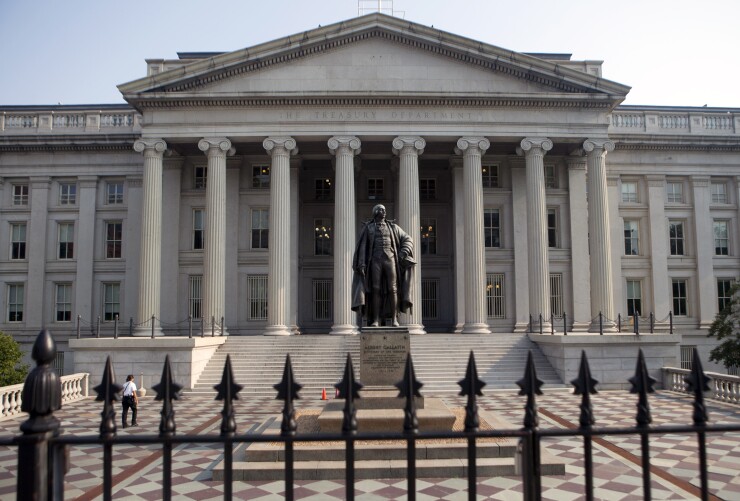
Democrats on the House and Senate banking committees Friday introduced legislation that would more forcefully implement the Corporate Transparency Act after the Treasury said in March that it would not enforce the law's ownership disclosure requirement.
The
Banks had been among the CTA's biggest proponents, hoping that requiring true owners to be disclosed at the time of incorporation would aid them in complying with long-standing anti-money-laundering requirements. The law's critics, meanwhile, have said the rules implementing the CTA imposed onerous and invasive requirements on small businesses. While the Trump administration has said it would issue new CTA implementation rules, Democrats said the interim final rule undercuts the law's clear purpose.
"The Corporate Transparency Act is still the law, and the Trump administration is wrong to stop enforcing it," said Rep. Nydia Velázquez, D-N.Y., the bill's author. "Turning a blind eye to anonymous shell companies leaves us vulnerable to fraud, corruption, and abuse. These shell companies don't just enable white-collar crime — they hurt honest small businesses by rigging the system and exploiting programs meant for real entrepreneurs. This bill is about holding bad actors accountable while making sure small business owners have the information and support they need to follow the law."
The proposal, which is also cosponsored by the House financial services committee's ranking member Maxine Waters, D-Calif., would reinforce the CTA's reporting requirements in a number of procedural moves. Within 90 days of the act's enactment, the heads of the Treasury and the Small Business Administration would be required to enter into a memorandum of understanding to create a plan to provide outreach, education and fraud prevention tools in multiple languages to assist reporting companies.
The agencies would also be required to submit status reports to the lawmakers' respective committees. An analogous piece of legislation was introduced in the Senate by Sens. Elizabeth Warren, D-Mass., and Ed Markey, D-Mass., who serve as ranking members of the Senate banking and small business committees, respectively. Sen. Sheldon Whitehouse, D-R.I., also cosponsored the Senate bill.
The Treasury said that it plans to narrow the scope of the regulations to apply only to foreign entities operating in the U.S. Secretary Bessent described the move as a "victory for common sense," aligning with the administration's agenda to reduce regulatory burdens on small businesses.
President Trump
Critics say the U.S. risks falling behind global anti-money-laundering standards, inviting scrutiny from watchdogs like the FATF and reputational damage for banks. But defenders cite high compliance burdens for small businesses and privacy concerns.
"Anonymous shell companies hurt honest small businesses and open the door to fraud and abuse. The Trump Administration should be working with small businesses, not refusing to enforce the Corporate Transparency Act," said Warren in a






